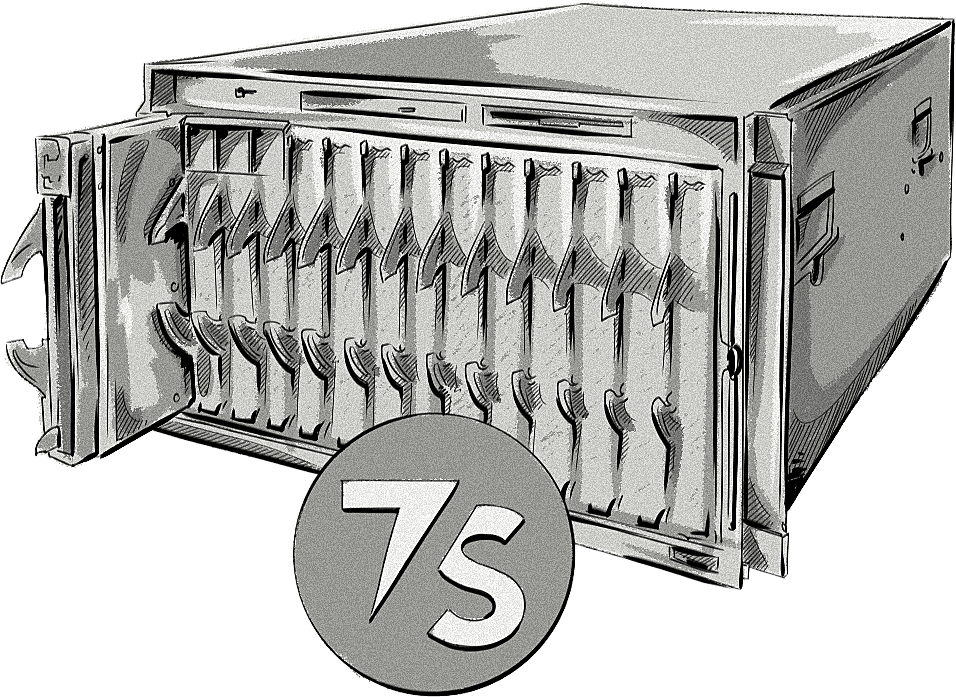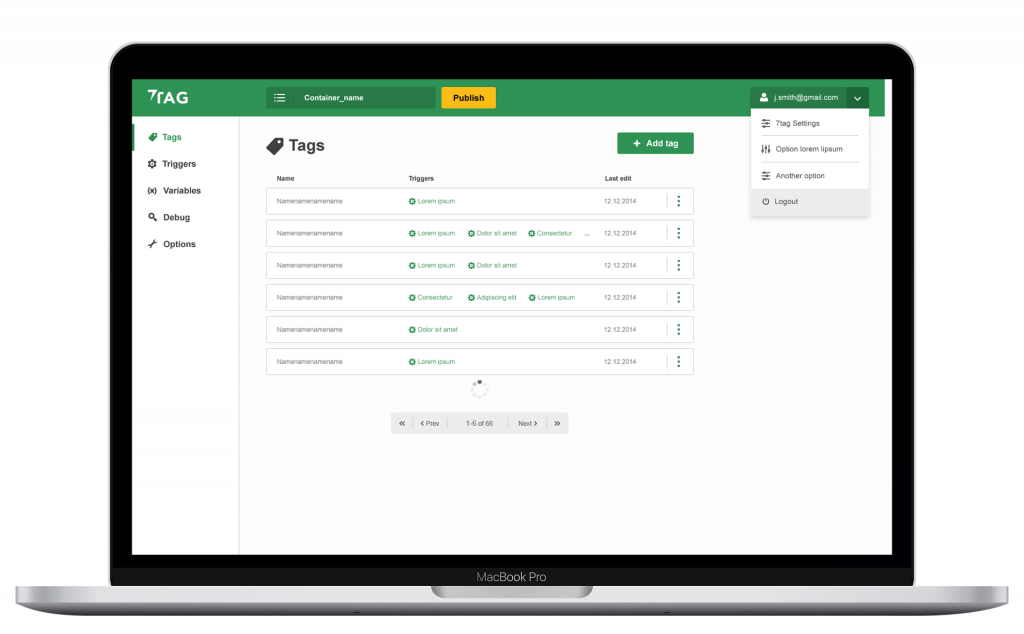Learn more about the 7suite project

Data Management Stack for 7suite
Clearcode builds 7suite to help AdTech and MarTech companies decrease their time to market and cut development costs.
The online marketing and advertising industries have seen an influx of software solutions over the past 10 years, and while these new tools and platforms allow marketers and advertisers to improve productivity, building them requires substantial technical resources, financial investments, and time.
For many marketing technology (MarTech) and advertising technology (AdTech) companies, building even the most necessary and basic features often means months of development and testing. This results in a slow time to market and expensive development projects.
As Clearcode is a full-service software development company that specializes in AdTech and MarTech development, we know and understand the needs and challenges that most AdTech and MarTech companies face.
CLIENT
Startup
INDUSTRY
Digital marketing
SERVICE
MarTech
COUNTRY
Poland
About 7suite
7suite is a fully customizable data-management stack consisting of data collection, data management, and content-personalization components.
AdTech and MarTech companies can build upon 7suite’s ready-to-use components to create completely unique solutions that match the needs and goals of their business and differentiate themselves from the competition.

Key points
Product
7suite is a fully customizable data-management stack consisting of data collection, data management, and content-personalization components.
Challenges
The main challenges we faced were related to data collection, integrations with other platforms, and providing a low-latency application programming interface (API).
Components
We designed and built a tag management system, data management platform (DMP), and content personalization engine.
Use cases
7suite’s components can be used to build other platforms, including a content recommendation engine, dynamic creative optimization tool, and an advanced attribution platform.
“Customization and scalable pricing make 7suite ideal for ad tech companies with multiple customers that need to easily integrate custom data-management tools into their larger technology stack.”
Rohit Roy
MARTECH ADVISOR
The Goal
The goal of the 7suite project was to design and build a tag management system, data management platform, and content personalization engine.
Main challenges
The main challenges we faced included:
- Creating an extensible and modular platform
- Pushing data to various demand-side platforms (DSPs) by integrating 7suite’s components with various AdTech companies
- Enabling the collection of various pieces of data from various data sources
- Providing a low-latency application programming interface (API) that can be queried to retrieve information about the visitor in real-time
What we did
7suite comprises of three main components:
Tag management system (TMS)
Tag management systems are used by advertisers and marketers to create, deploy, and manage various tags (small snippets of code that send data from a website to a piece of software, such as an analytics platform).
We built a tag-management system that would allow advertisers and marketers to easily and efficiently manage all their tags across all their websites.
This was the first component of 7suite we built, but instead of waiting for the other components to be built before releasing it, we decided to make it available to the public under an open-source license. The TMS was called 7tag.
This allowed us to gain direct feedback from initial users and make immediate improvements.
Data management platform (DMP)
The data-management platform (DMP) is the key component of the 7suite stack and is responsible for a number of critical data-management functions, such as data analysis, audience segmentation, and profile building.
It is also the part that ties together data collection and activation.
The 7suite DMP is able to handle a number of key data-management functionalities, most of which are listed under the section 7suite’s Main Features.
Content personalization engine
There are a number of ways advertisers and marketers can activate the data in their DMP, but one of the most popular ways is to personalize content, which refers to personalizing the content on a website or dynamically changing ads based on certain targeting criteria.
The content personalization component of 7suite (known as 7ad) allows companies to utilize the data in the DMP to display different pieces of content and dynamic ads to users based on a set of predefined variables and audience segments.

Possible use cases of 7suite
As 7suite was intended to be a fully customizable solution, AdTech and MarTech companies can utilize 7suite’s components and APIs to build a range of custom solutions.
Some of 7suite’s possible use cases include:
- Content recommendation engine
- Dynamic creative optimization (DCO)
- Data exportation to third-party platforms
- Advanced attribution
Content personalization engine
There are a number of ways advertisers and marketers can activate the data in their DMP, but one of the most popular ways is to personalize content, which refers to personalizing the content on a website or dynamically changing ads based on certain targeting criteria.
The content personalization component of 7suite (known as 7ad) allows companies to utilize the data in the DMP to display different pieces of content and dynamic ads to users based on a set of predefined variables and audience segments.
How we built
a successful project
The three main keys to the success of 7suite were the following:
Our experience in building AdTech and MarTech platforms
Building AdTech and MarTech solutions requires a certain amount of knowledge and skill that can only really be acquired through firsthand experience. As we’ve been building software for the online advertising and marketing industries for over seven years, our teams have the industry experience needed to avoid costly mistakes, maintain a high speed of development, and produce quality software.
Our full-service team
One of the keys to any successful software project is open communication and close cooperation within the team, which is especially true during important crossover phases (e.g. when the design team hands over the project to the developers). The fact that our teams consist of all the necessary resources needed to plan, design, manage, build, and maintain AdTech and MarTech platforms is one of our strengths and played a key role in the success of 7suite.
Our agile and incremental approach to software development
Building and releasing the three main components one at a time allowed us to gain valuable feedback from our initial users and gain traction early on.
Also, as our teams applied agile methodologies to 7suite’s development, we were able to avoid potential obstacles, easily change the direction of the project when the situation called for it, quickly react to client feedback, and build a backlog of new features during the development phases.
In addition, our agile approach coupled with our incremental approach to software development enabled us to release new or improved features every two weeks, which allowed us to experience new successes on a regular basis.
The technologies we used
JavaScript
Python
React
Angular
The result
7suite gained early interest from a number of AdTech and MarTech companies, which lead to us attracting our first clients.
In 2017, we decided to merge 7suite with our other startup venture, Piwik PRO. All of 7suite’s components are now offered under the Piwik PRO brand and make up the bulk of the Piwik PRO Marketing Suite.